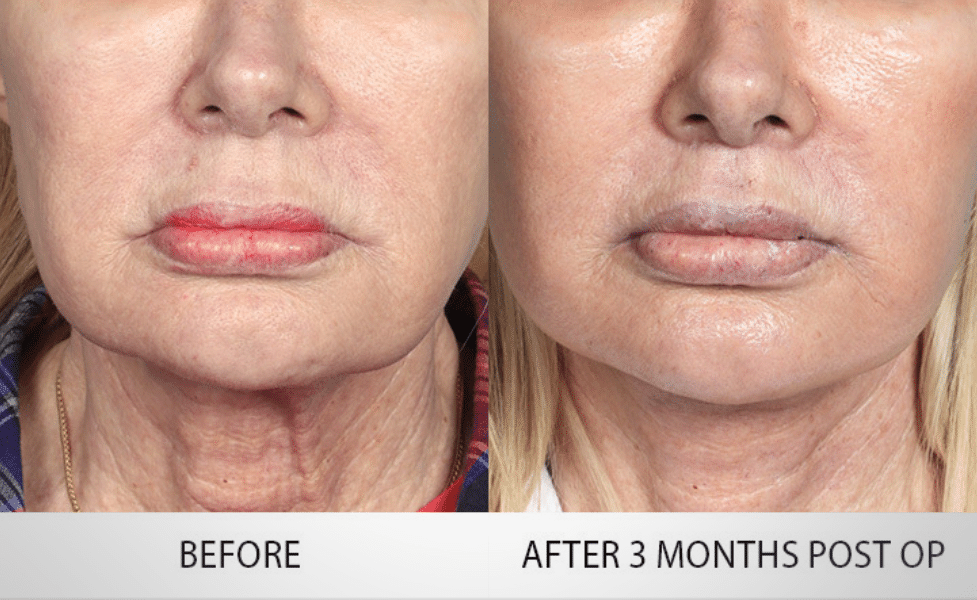With lips now a focal point in beauty aesthetics, a lip lift procedure has emerged as a prominent choice for achieving fuller, more youthful lips. This article explores the lip lift technique, a surgical procedure offering permanent enhancement, unlike temporary lip fillers.
What is a Lip Lift?
A lip lift is a surgical technique designed to shorten the distance between the nose and the upper lip (the philtrum), resulting in a fuller and more defined upper lip. The procedure can be tailored as either a “bullhorn” lift, which lifts the entire upper lip, or a corner lip lift, enhancing the outer lip edges for a lifted appearance. Lip lifts are often performed under local anesthesia, with incisions made just below the nostrils for minimal visible scarring.
Benefits of a Lip Lift Procedure
- Enhanced Definition and Proportion: Lifting the upper lip creates a more pronounced lip line, contributing to facial harmony.
- Youthful Appearance: By shortening the philtrum, a lip lift addresses signs of aging, creating a fresh look.
- Long-Lasting Results: Unlike fillers, a lip lift is a one-time procedure with enduring effects.
- Natural-Looking Results: The procedure reshapes the lips for a balanced enhancement, avoiding the “overfilled” look often seen with fillers.
Lip Lift vs. Lip Fillers
For individuals deciding between a lip lift and fillers, some key differences include:
- Longevity: A lip lift provides a permanent solution, whereas fillers require frequent touch-ups.
- Downtime: Lip fillers require minimal downtime, while a lip lift has a recovery period with some swelling and bruising.
- Customization: Lip fillers allow for flexible enhancement; a lip lift is less adaptable post-procedure.
A consultation with a qualified cosmetic surgeon will help determine the suitable option based on individual goals.

Photo Courtesy: Aesthetic MDR
Am I a Candidate for a Lip Lift?
Ideal candidates for a lip lift typically have:
- A longer philtrum or thin upper lip needing more definition
- Good skin elasticity, aiding recovery
- No major health issues that could impede healing
During a consultation, your surgeon will assess these factors and advise whether a lip lift is right for you.
Recovery and Aftercare
Recovery from a lip lift involves following specific aftercare guidelines:
- Initial Days Post-Surgery: Use a skin-colored bandage to keep the area sterile, avoid touching the lips, and stick to soft foods to reduce strain on the area.
- First Week: Sutures are removed, and residual swelling and bruising continue to diminish.
- Long-Term Care: Sun protection and gentle skincare are essential for minimizing scarring and ensuring optimal healing.
Additional Scar Treatment Options
If scarring remains visible after recovery, treatments like laser resurfacing or microneedling can help improve scar appearance, enhancing the overall aesthetic outcome.
FAQs
- Is a lip lift reversible?
No, a lip lift provides permanent results and cannot be reversed. - Can a lip lift be combined with other procedures?
Yes, it is often paired with facelifts or other rejuvenation treatments for a cohesive enhancement. - Are there risks?
As with any surgery, risks include infection or scarring, but selecting a skilled surgeon helps mitigate these. - Is the procedure painful?
The procedure involves mild discomfort managed with local anesthesia and pain medication.
In conclusion, a lip lift offers a lasting solution for individuals seeking a balanced and naturally enhanced lip appearance. Consulting with a qualified surgeon will ensure your aesthetic goals are met, providing confidence and satisfaction with the results.
Looking to achieve a naturally fuller, more youthful smile? Discover the benefits of a lip lift for a balanced, long-lasting enhancement! Read our full article for insights on why this procedure stands out from temporary solutions: Lip Lift: Permanent Solutions for Lip Enhancement
Disclaimer: This content is for informational purposes only and is not intended as medical advice, nor does it replace professional medical expertise or treatment. If you have any concerns or questions about your health, always consult with a physician or other healthcare professional.
Published By: Aize Perez














